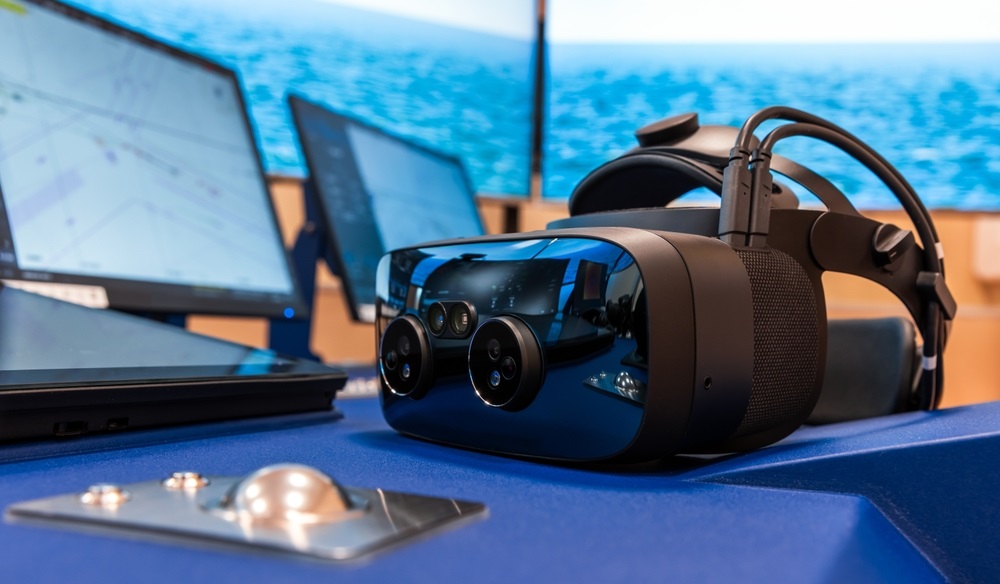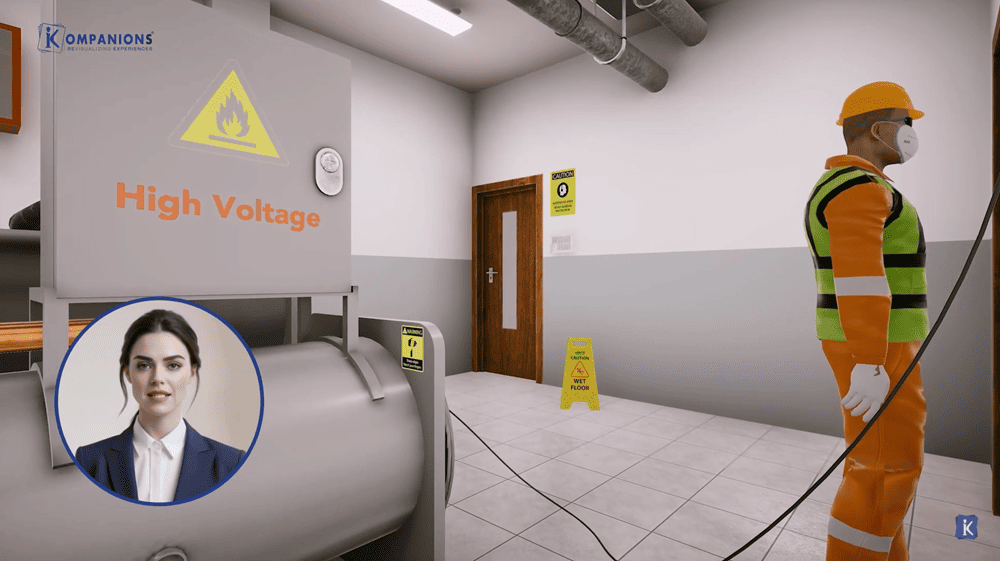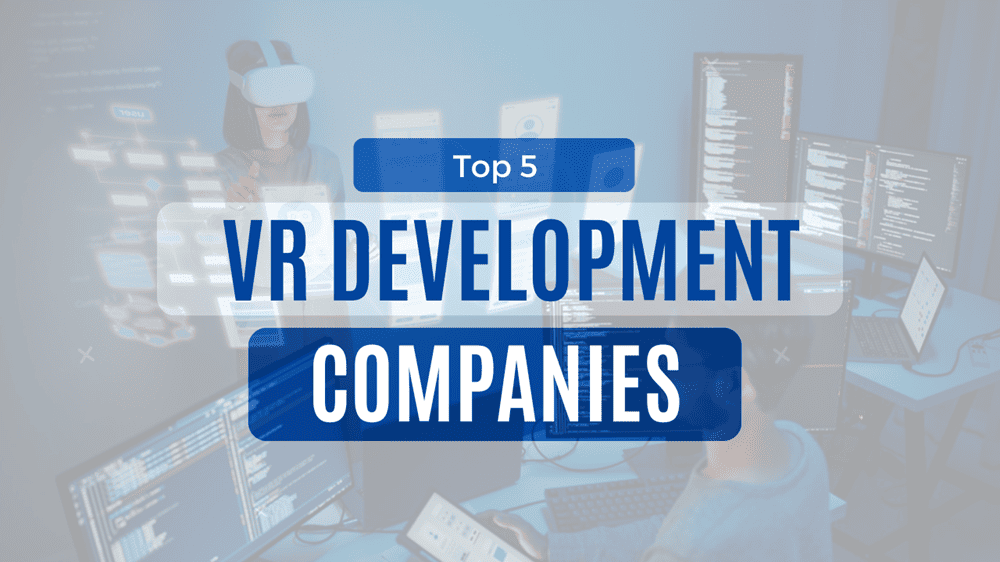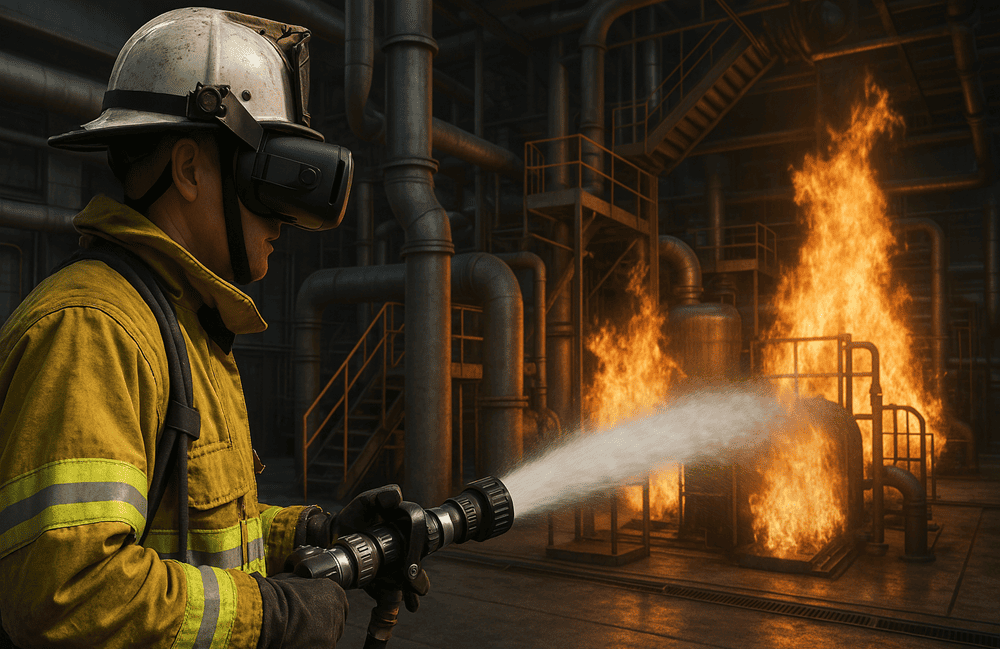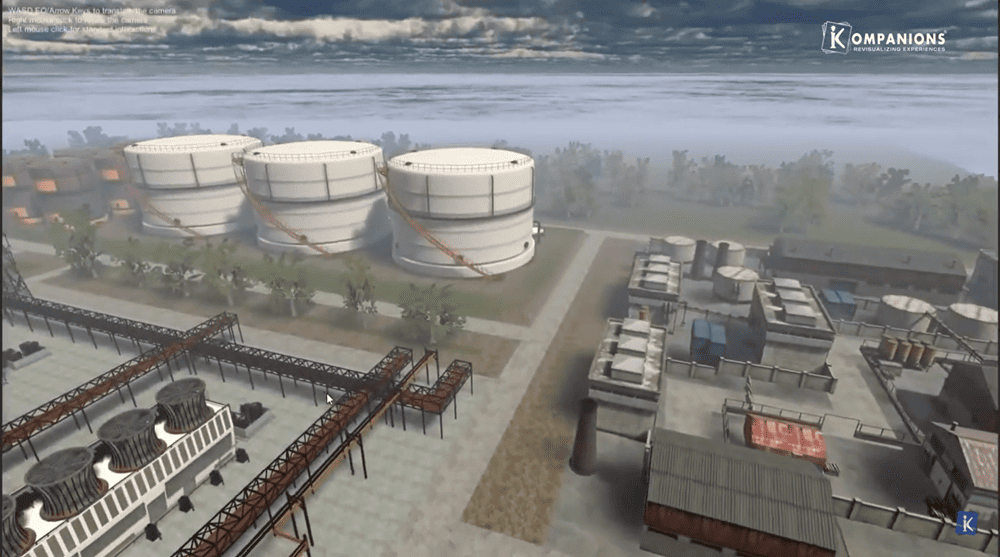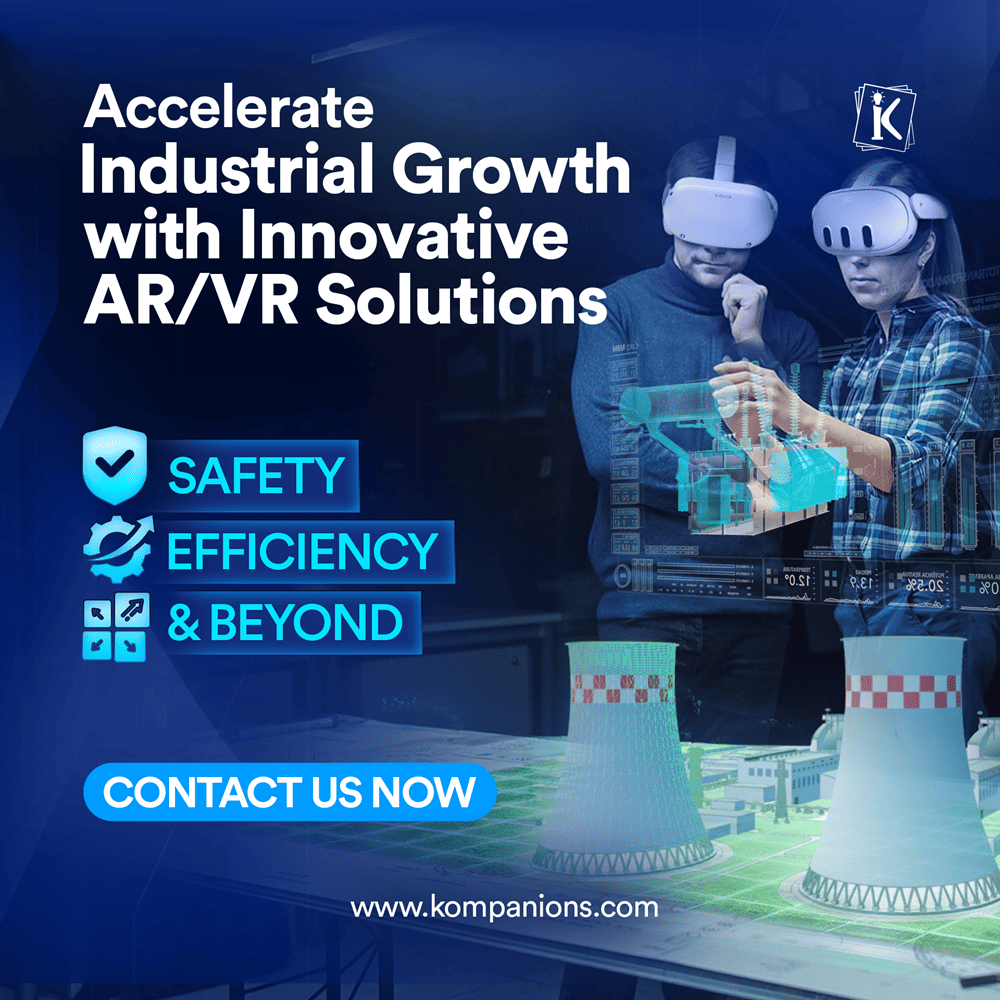VR Marine Training: Enhancing Safety in the Maritime Industry
With its long and eventful past, the maritime industry has always stood tall and fine as the earliest in discovering new axes of training for safety, effectiveness, and skill development.
The last few years have dramatically changed the maritime training landscape, driven by technological advances and the shifting needs of the global shipping sector.
In this transition, these new methods have moved from traditional classroom-based setups into something more interactive and engaging, where VR safety training solutions have grown prominently into one of the leading technologies for workplaces and industrial safety. VR in marine training is a game changer. It provides a powerful and engaging way to boost maritime safety.
The Need for Enhanced Maritime Training
The maritime sector involves several operations which include dangerous situations making safety a primary concern. Conventional training techniques can't prepare seafarers for all emergencies. The touch of realism is absent in these traditional methods. This can lead to:
- Increased risk of accidents
- Higher training costs
- Inconsistent training quality
VR in Marine Training: A Game Changer
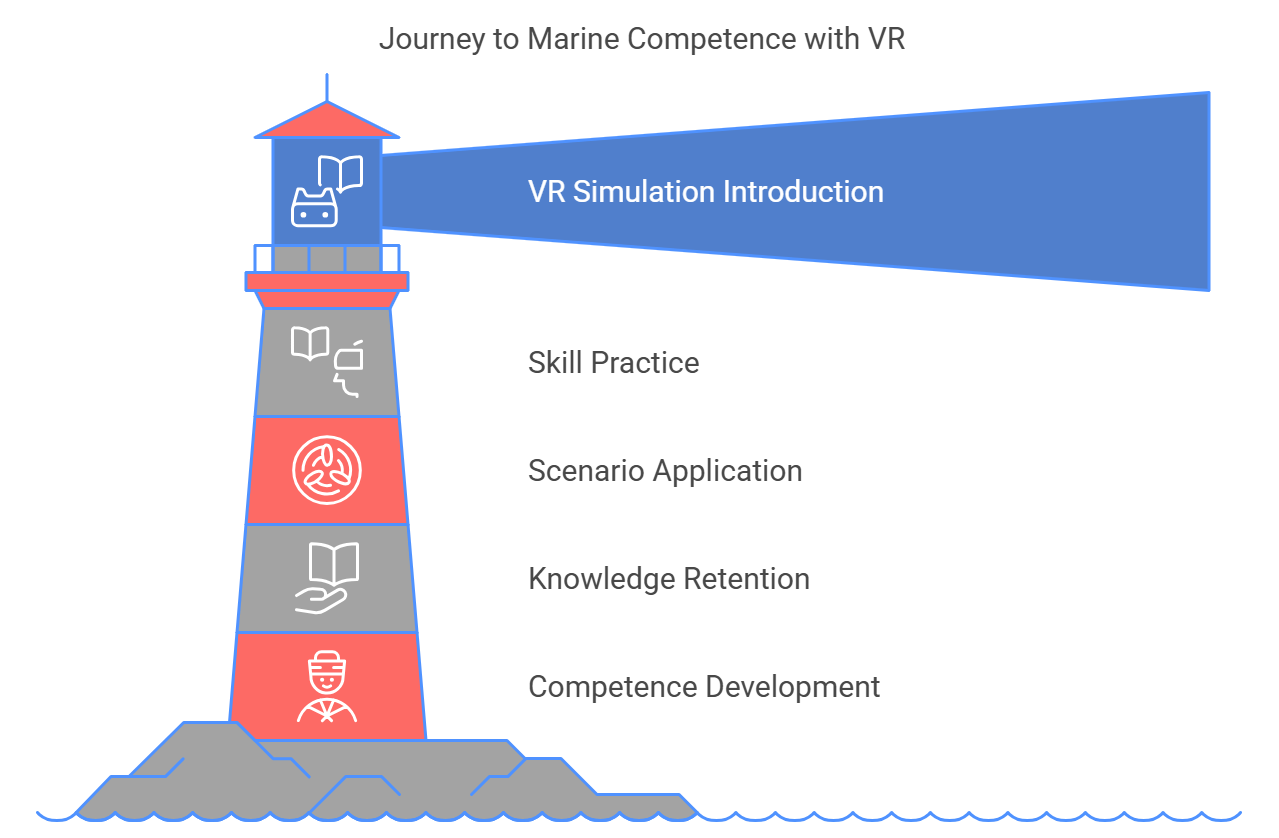
VR for Marine Training is a great alternative to the conventional methods of training maritime employees. VR training provides interactive and immersive learning experiences imitating real-world situations.
Mariners can use virtual reality technology to practice complex tasks. This helps them manage emergencies and build important decision-making skills. They do all this in a safe and controlled setting.
How VR in Marine Training is Transforming Maritime Safety
Virtual Reality is revolutionizing marine training by providing immersive, risk-free environments for mariners to develop essential skills. As a result, maritime safety is reaching new levels of effectiveness and efficiency.
✔️Immersive Simulations
VR in Marine Training offers realistic scenes of different maritime settings, including ship bridges, engine rooms, and cargo holds. Seafarers can use virtual tools, deal with different weather, and practice navigating challenging waters.
✔️Hands-on Experience
VR in Marine Training lets seafarers join simulations, unlike traditional training. They can use virtual controls, perform tasks, and make choices that change the virtual environment.
✔️Safe Environment
VR in Marine Training eliminates the risks associated with on-the-job training. Seafarers can try out complex and risky procedures without worrying about real-world consequences.
✔️Cost-Effectiveness
Though the deployment charges for VR equipment are substantial, it is more like a one-time investment. The possibility of accidents and the need for costly on-the-job training are eliminated.
✔️Personalized Learning
VR in Marine Training can be tailored to individual learning needs. Trainees can repeat simulations as often as they need to master skills and procedures.
✔️Improved Knowledge Retention
VR in Marine Training is immersive and interactive. This helps improve knowledge retention and makes complex concepts easier to understand.
Benefits of Immersive Marine Training

Several studies highlight the effectiveness of VR in the Marine. From ship navigation to emergency response, VR increases learning efficiency, safety and cost-effectiveness. Check out these benefits VR marine training offers.
✅ Improved Knowledge Retention
Candidates trained using VR simulations show much greater knowledge retention than those who receive traditional training and learning. The immersive nature of VR enhances engagement, allowing trainees to absorb and apply information more effectively in real-world maritime scenarios.
✅ Enhanced Skill Development
VR simulations permit crew members to continue mastering complex skills repetitively, thus achieving greater competency and faster skill development.
✅ Reduced Training Time
Immersive marine training provides a significantly faster and more efficient learning experience by immersing mariners in realistic, hands-on simulations. It enables trainees to practice complex maritime operations repeatedly in a controlled virtual environment, helping them grasp concepts more quickly.
As a result, VR shortens training time while improving skill retention and operational readiness.
✅ Increased Engagement
VR simulations are interactive and engaging. This boosts trainee motivation and leads to a better learning experience. By allowing hands-on practice in a risk-free environment, VR helps trainees build confidence and improve their decision-making skills more effectively.
Challenges and Future of VR in Marine Training:
While VR in Marine Training offers significant advantages, some challenges remain:
- Cost of Implementation: The first investment in VR gear and software can be quite high.
- Creating high-quality VR simulations needs strong skills and plenty of resources.
- Accessibility and Availability: Training seafarers with VR can be troublesome in remote areas.
Still, the outlook for using virtual reality in Marine Training remains bright. With the evolution in VR technology and growing availability, the maritime industry is likely to deploy these VR solutions at higher rates.
Expect simulated training with greater realism and tailored learning experiences blended with mixed realities and gaming technology.
Also Read: Applications of Virtual Reality in Military Training
Future Trends and Predictions in VR and Maritime Training
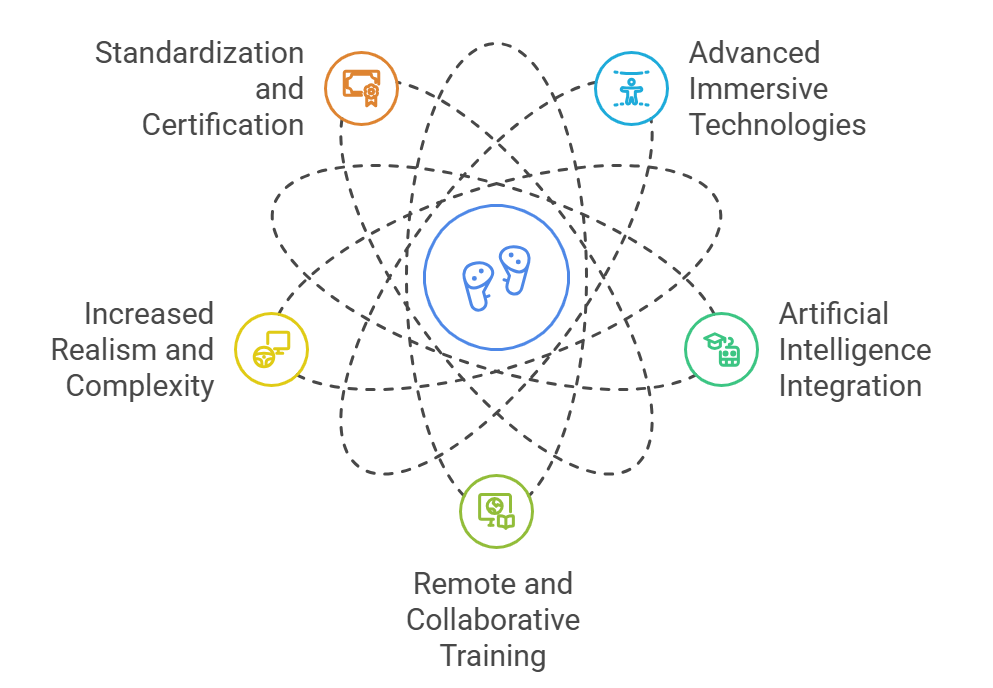
VR in marine training is expected to dramatically change the maritime industry with advancing technologies and growing acknowledgment of VR's potential for professional development. The future trends include the following:
1. Advanced Immersive Technologies
Advanced immersive vr simulation technologies are extra tools added to augmented and mixed reality. They help create a better small-scale environment for training. Virtual and physical assets now work together, creating a richer and more immersive learning experience for trainees.
2. Artificial Intelligence Integration
AI-powered virtual reality simulations will thrive by providing adaptive learning experiences. These will be adjusted based on each trainee's skill level and progress. AI evaluates performance in real time. It gives tailored feedback and changes scenarios to set the right challenge for the trainee.
3. Remote and Collaborative Training
VR technology improvements could enhance the frequency and effectiveness of remote training programs. Trainees in various locations can work together in the same virtual space, making training programs more flexible and accessible.
4. Increased Realism and Complexity
As computer graphics and physics engines improve, so does sensory feedback. VR simulations will include more complex and realistic elements, creating detailed training scenarios that closely match real problems at sea.
5. Standardization and Certification
Wide use of VR training will keep interest in matching VR modules with real maritime-certified courses. This way, the acceptance and value of VR training would matter to the whole industry.
Bottom Line
VR is changing how mariners train. The result is a safer and more efficient maritime transport industry. With this, VR provides an outlook for seafarers with extremely immersive, hands-on, and cost-efficient training. It gives such personnel the skills and knowledge required to overcome obstacles in the maritime environment.
As technology evolves, VR in Marine Training will become vital. It will improve safety and encourage best practices in the maritime industry. VR greatly improves training results, making it essential for future maritime safety.

